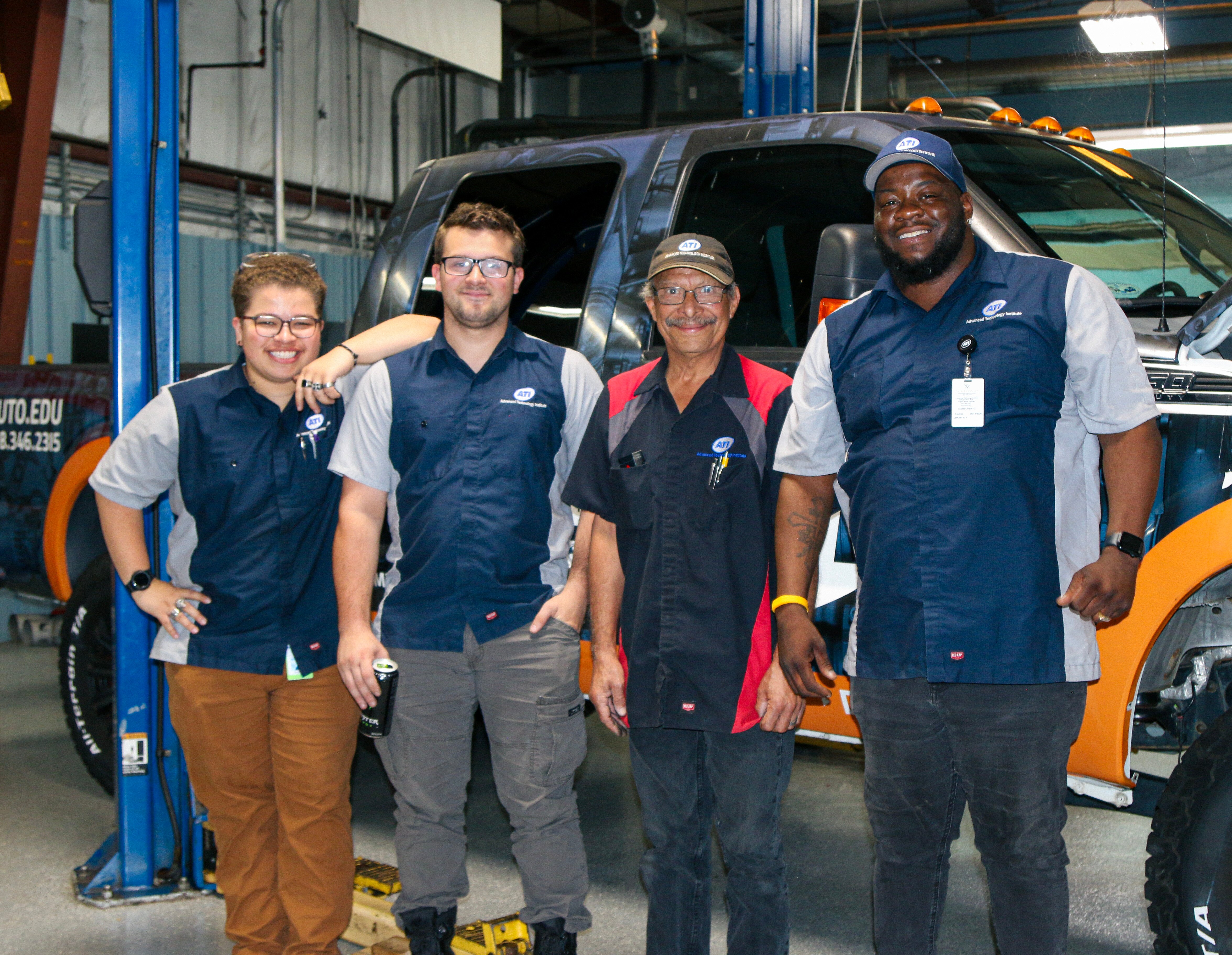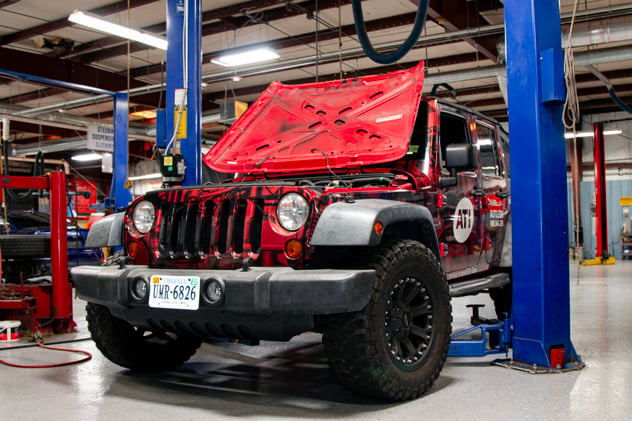Mechanic: The Comprehensive Guide

What is a Mechanic?
A mechanic is a skilled tradesperson who uses tools to build, maintain, or repair machinery, particularly vehicles like cars, trucks, motorcycles, and heavy equipment. Mechanics are integral to various industries, from automotive to aviation, ensuring that machinery operates efficiently and safely. This guide delves into the many facets of the mechanic profession, covering everything from auto mechanics to aircraft mechanics, the importance of certifications like ASE, and the training pathways available for aspiring mechanics.
Duties of a Mechanic
Mechanics are typically categorized by the type of machinery they work on, with specializations that allow them to focus on specific fields. Whether dealing with lightweight vehicles like cars and motorcycles or heavyweight machinery like tractors and airplanes, mechanics play a crucial role in maintaining the functionality and safety of these machines.
Mechanics' duties often include diagnosing issues, performing routine maintenance, and repairing mechanical components. Some mechanics are mobile, offering services directly at the location of the machinery, especially when working with heavy equipment that cannot be easily transported.
Types of Mechanics
Mechanics can specialize in various areas, each requiring specific skills and knowledge. Below are the main types of mechanics, each with a unique focus and set of responsibilities:
Auto Mechanic
Auto mechanics are experts in maintaining and repairing automobiles, including cars, light trucks, and SUVs. Their work involves a wide range of tasks, from simple oil changes to complex engine rebuilds. As vehicles become more advanced with sophisticated computer systems and electronic components, the role of the auto mechanic has evolved to include a strong emphasis on diagnostics and troubleshooting.
Key Responsibilities:
- Engine Repair: Diagnosing and fixing engine problems, including issues with fuel injection, ignition, and exhaust systems.
- Transmission Repair: Working on both automatic and manual transmission systems, ensuring smooth gear shifting and power delivery.
- Brake System Maintenance: Inspecting, repairing, and replacing brake components such as pads, rotors, and hydraulic systems.
- Electrical Systems: Diagnosing and repairing electrical issues, including problems with batteries, starters, alternators, and lighting systems.
- Routine Maintenance: Performing regular maintenance tasks like oil changes, tire rotations, and fluid checks to keep vehicles running smoothly.
Auto mechanics require a blend of technical knowledge and practical skills, often acquired through years of hands-on experience and formal training. In many regions, becoming a certified auto mechanic is essential, with organizations like the National Institute for Automotive Service Excellence (ASE) providing certifications that validate a mechanic’s expertise.
Diesel Mechanic
Diesel mechanics specialize in working with diesel engines, which are commonly found in trucks, buses, heavy machinery, and some marine vessels. Diesel engines differ significantly from gasoline engines, requiring specialized knowledge to maintain and repair them effectively.
Key Responsibilities:
- Engine Diagnostics: Using advanced diagnostic tools to identify and repair issues in diesel engines, including fuel systems, turbochargers, and emissions control systems.
- Transmission and Drivetrain Repair: Maintaining and repairing the heavy-duty transmissions and drivetrains found in diesel-powered vehicles.
- Preventive Maintenance: Conducting regular inspections and maintenance to prevent breakdowns and extend the life of diesel engines.
- Hydraulic Systems: Working on the hydraulic systems that are essential for operating heavy machinery and commercial vehicles.
- Exhaust and Emissions Systems: Ensuring compliance with environmental regulations by maintaining and repairing exhaust and emissions systems.
Diesel mechanics often work in industries where reliability and durability are crucial, such as transportation, construction, and agriculture. Given the complexity of modern diesel engines, diesel mechanics must stay up to date with the latest advancements in technology and emissions control.
Car Mechanic
Car mechanics, while like auto mechanics, often specialize even more by focusing on specific types of vehicles or brands. This specialization allows them to develop in-depth knowledge of particular models, making them invaluable for maintaining and repairing those vehicles.
Key Responsibilities:
- Brand-Specific Diagnostics: Using manufacturer-specific diagnostic tools and software to troubleshoot issues unique to certain car brands.
- Performance Tuning: Enhancing vehicle performance through modifications to the engine, exhaust, and suspension systems.
- Hybrid and Electric Vehicle Maintenance: Specializing in the repair and maintenance of hybrid and electric vehicles, which require different skills compared to traditional gasoline-powered cars.
- Bodywork and Collision Repair: Focusing on repairing damage from accidents, including frame straightening, dent removal, and repainting.
Car mechanics may work in specialized shops or dealerships where they can leverage their expertise in specific brands or vehicle types. Their work is often more focused and can involve high-performance or luxury vehicles that require meticulous care.

ASE Certification
The National Institute for Automotive Service Excellence (ASE) is the leading certification body for automotive professionals in the United States. ASE certification is a mark of excellence, indicating that a mechanic has the skills and knowledge to perform high-quality work.
Importance of ASE Certification:
- Standardized Testing: ASE certification involves passing rigorous exams that test a mechanic’s knowledge in various areas, such as brakes, engine repair, and electrical systems.
- Professional Recognition: ASE-certified mechanics are recognized as experts in their field, often leading to better job opportunities and career advancement.
- Master Technician Status: Mechanics who pass a series of exams across different specializations can achieve Master Technician status, a highly respected credential in the industry.
To maintain their ASE certification, mechanics must undergo re-certification every five years, ensuring that they stay current with the latest developments in automotive technology.
Aircraft Mechanic
Aircraft mechanics, also known as aviation mechanics, are responsible for maintaining and repairing aircraft, including airplanes and helicopters. Their work is critical to ensuring the safety and reliability of air travel.
Key Responsibilities:
- Engine Maintenance: Servicing and repairing aircraft engines, whether turbine or piston, to ensure optimal performance and safety.
- Airframe Repair: Maintaining and repairing the structural components of an aircraft, including the fuselage, wings, and landing gear.
- Avionics Systems: Working on the electronic systems that are crucial for navigation, communication, and flight control.
- Safety Inspections: Conducting thorough inspections before and after flights to identify any potential issues that could affect safety.
- Compliance with Regulations: Ensuring that all repair and maintenance work comply with the strict regulations set by aviation authorities.
Aircraft mechanics must be certified by national aviation authorities, such as the Federal Aviation Administration (FAA) in the United States. This certification is mandatory for performing many types of maintenance and repairs on aircraft.
Airplane Mechanic
Airplane mechanics, a subset of aircraft mechanics, focus specifically on airplanes, from small private planes to large commercial jets. Their work requires a deep understanding of the complex systems that keep airplanes in the air.
Key Responsibilities:
- Powerplant Systems: Specializing in the maintenance of airplane engines and related systems, ensuring they deliver the necessary power for safe flight.
- Landing Gear Systems: Inspecting and repairing landing gear, which is critical for safe takeoffs and landings.
- Fuel Systems: Maintaining and repairing the fuel systems that store and deliver fuel to the engines, ensuring efficient and reliable operation.
- Electrical Systems: Working on the electrical components that power the aircraft’s systems, including lighting, instrumentation, and avionics.
Airplane mechanics often work for airlines, private aviation companies, or military organizations. Their work is highly regulated, and they must follow strict protocols to ensure the safety of every flight.
Aviation Mechanic
Aviation mechanics, like aircraft and airplane mechanics, may also work on other types of aircraft, such as helicopters and drones. Their expertise extends to a broader range of aviation technologies.
Key Responsibilities:
- Rotary-Wing Aircraft: Maintaining and repairing helicopters, which have different mechanical and aerodynamic requirements than fixed-wing aircraft.
- Drones and Unmanned Aerial Vehicles (UAVs): Specializing in the maintenance and repair of drones, which are increasingly used in both commercial and military applications.
- Composite Materials: Working with advanced composite materials used in modern aircraft construction, which require specialized knowledge and repair techniques.
- Avionics Integration: Ensuring that all electronic systems in the aircraft are properly integrated and functioning together, including communication, navigation, and flight control systems.
Aviation mechanics must be versatile and able to work on a wide range of aircraft types, each with its own unique set of challenges and requirements.
Boat Mechanic
Boat mechanics specialize in maintaining and repairing boats and other watercraft. They work on various types of engines and systems that are unique to marine environments.
Key Responsibilities:
- Inboard and Outboard Engines: Repairing and maintaining different types of marine engines, ensuring they operate efficiently and reliably.
- Propulsion Systems: Working on propellers, shafts, and other components that enable boats to move through water.
- Steering and Control Systems: Maintaining and repairing the systems that control the boat’s direction and speed, ensuring safe navigation.
- Hull Maintenance: Inspecting and repairing the boat’s hull, which may involve working with fiberglass, wood, or metal materials.
- Marine Electrical Systems: Working on the electrical systems that power the boat’s lights, navigation equipment, and other onboard electronics.
Boat mechanics often work in marinas, boatyards, or for companies that service commercial fleets. Their work is crucial for ensuring that boats are safe to operate, whether for recreational or commercial purposes.
Motorcycle Mechanic
Motorcycle mechanics specialize in the repair and maintenance of motorcycles, scooters, and all-terrain vehicles (ATVs). Their work requires a deep understanding of small engines, and the unique mechanical systems found in these vehicles.
Key Responsibilities:
- Engine Tuning and Repair: Adjusting and repairing motorcycle engines to ensure optimal performance and efficiency.
- Transmission and Drive Systems: Working on the transmission and drive systems, including chains, belts, and gearboxes, to ensure smooth power delivery.
- Suspension and Brakes: Maintaining and repairing the suspension and brake systems, which are critical for rider safety and comfort.
- Electrical Systems: Diagnosing and fixing electrical issues, including problems with ignition systems, lights, and batteries.
- Customization and Modifications: Assisting customers with customizing their motorcycles, including modifications to the engine, exhaust, and bodywork.
Motorcycle mechanics often work in specialized shops or dealerships, where they cater to enthusiasts and riders who demand the highest performance from their machines.
Elevator Mechanic
Elevator mechanics are specialized tradespeople who install, maintain, and repair elevators, escalators, and moving walkways. Their work is crucial in ensuring the safety and reliability of these systems in buildings.
Key Responsibilities:
- Installation: Setting up new elevator systems, including assembling and installing the mechanical and electrical components.
- Maintenance: Conducting regular inspections and maintenance to prevent breakdowns and ensure smooth operation.
- Repairs: Diagnosing and repairing issues with elevator systems, such as problems with motors, control panels, or safety mechanisms.
- Safety Testing: Performing safety tests to ensure that elevators meet regulatory standards and are safe for public use.
- Modernization: Upgrading older elevator systems with new technology to improve performance and safety.
Elevator mechanics typically work for building maintenance companies, elevator manufacturers, or construction firms. Their work is highly specialized, requiring knowledge of both mechanical systems and electronics.
Mechanic Training
Becoming a mechanic requires a combination of formal education, hands-on experience, and certification. The path to becoming a mechanic varies depending on the specialization, but generally involves attending a trade school or technical institute, completing an apprenticeship, and passing certification exams.
Training Programs:
- Trade Schools and Technical Institutes: These institutions offer programs that provide the foundational knowledge and practical skills needed to become a mechanic. Programs typically range from six months to two years and cover topics such as engine repair, electrical systems, and diagnostics.
- Apprenticeships: Many mechanics gain experience through apprenticeships, working under the supervision of experienced professionals. Apprenticeships provide hands-on training in real-world environments, allowing aspiring mechanics to develop their skills while earning a wage.
- Certifications: After completing their training, mechanics often pursue certification to validate their skills. Certification requirements vary by specialization and location, but commonly include passing exams and demonstrating a certain level of work experience.

Diesel Mechanic Training
Training to become a diesel mechanic involves specialized coursework focused on the unique aspects of diesel engines and the systems that support them. Diesel mechanic programs are offered by trade schools, community colleges, and technical institutes.
Key Training Components:
- Engine Theory and Repair: Understanding the principles of diesel engine operation and learning how to diagnose and repair common issues.
- Fuel and Emissions Systems: Studying the fuel injection systems and emissions controls used in diesel engines, including the latest technologies designed to reduce environmental impact.
- Hydraulic Systems: Learning how to maintain and repair the hydraulic systems that are essential for the operation of heavy machinery and commercial vehicles.
- Electronic Diagnostics: Gaining proficiency in the use of diagnostic tools and software that are critical for troubleshooting modern diesel engines.
- Preventive Maintenance: Developing skills in conducting regular inspections and maintenance to prevent costly breakdowns and extend the life of diesel engines.
Trade School for Mechanics
Trade schools play a crucial role in preparing the next generation of mechanics. These institutions offer focused education and training in various areas of mechanics, providing students with the skills they need to enter the workforce quickly.
Advantages of Trade Schools:
- Hands-On Training: Trade schools emphasize practical, hands-on training, allowing students to work directly on the types of machinery they will encounter in their careers.
- Industry Connections: Many trade schools have partnerships with local businesses and industries, providing students with opportunities for internships, apprenticeships, and job placements.
- Specialized Programs: Trade schools offer specialized programs that cater to different types of mechanics, such as automotive, diesel, aviation, and marine mechanics. This allows students to focus on their area of interest from the start of their education.
Auto Mechanic Schools
Auto mechanic schools are specialized institutions that focus on training students to become automotive technicians. These schools offer comprehensive programs that cover all aspects of automotive repair and maintenance.
Key Features of Auto Mechanic Schools:
- Comprehensive Curriculum: Programs at auto mechanic schools typically cover everything from basic automotive systems to advanced diagnostics and repair techniques.
- Certification Preparation: Many schools prepare students for ASE certification, providing the knowledge and skills needed to pass the exams and become certified automotive technicians.
- Modern Facilities: Auto mechanic schools often feature state-of-the-art facilities, equipped with the latest tools and technology used in the automotive industry. This allows students to train in an environment that closely mirrors the workplace.
- Career Support: Auto mechanic schools often provide career services, including job placement assistance, resume writing workshops, and interview preparation. This support helps graduates’ transition smoothly into the workforce.
Mechanics are vital to keeping our world moving, from the cars on the road to the planes in the sky. This guide has explored the diverse roles within the mechanic profession, from auto mechanics to aviation mechanics, and from motorcycle specialists to elevator technicians. We've also covered the importance of certifications like ASE, the specialized training required, and the various educational paths available through trade schools and technical institutes.
Whether you’re considering a career as a diesel mechanic, an aircraft mechanic, or any other type of mechanic, the right training and certification are key to building a successful career. Mechanics are skilled tradespeople who are in high demand across many industries, and with the proper education and hands-on experience, you can join their ranks and contribute to the safety and efficiency of the machinery that powers our modern world.
As you move forward, consider the areas of specialization that interest you most, and take advantage of the training programs and certifications available to develop your skills. The mechanic profession offers a rewarding career path with opportunities for growth and advancement, making it an excellent choice for those with a passion for working with their hands and solving complex problems. Looking for more information, Click here.
Industry Knowledge
Welcome to the Advanced Technology Institute's Blog, your resource for industry insights and discussions on technologies shaping the future of automotive, heavy vehicle, hvac, welding, and other related career paths.
Explore how ATI's curriculum and hands-on learning opportunities can propel your career in the tech-driven world.

.jpg)
